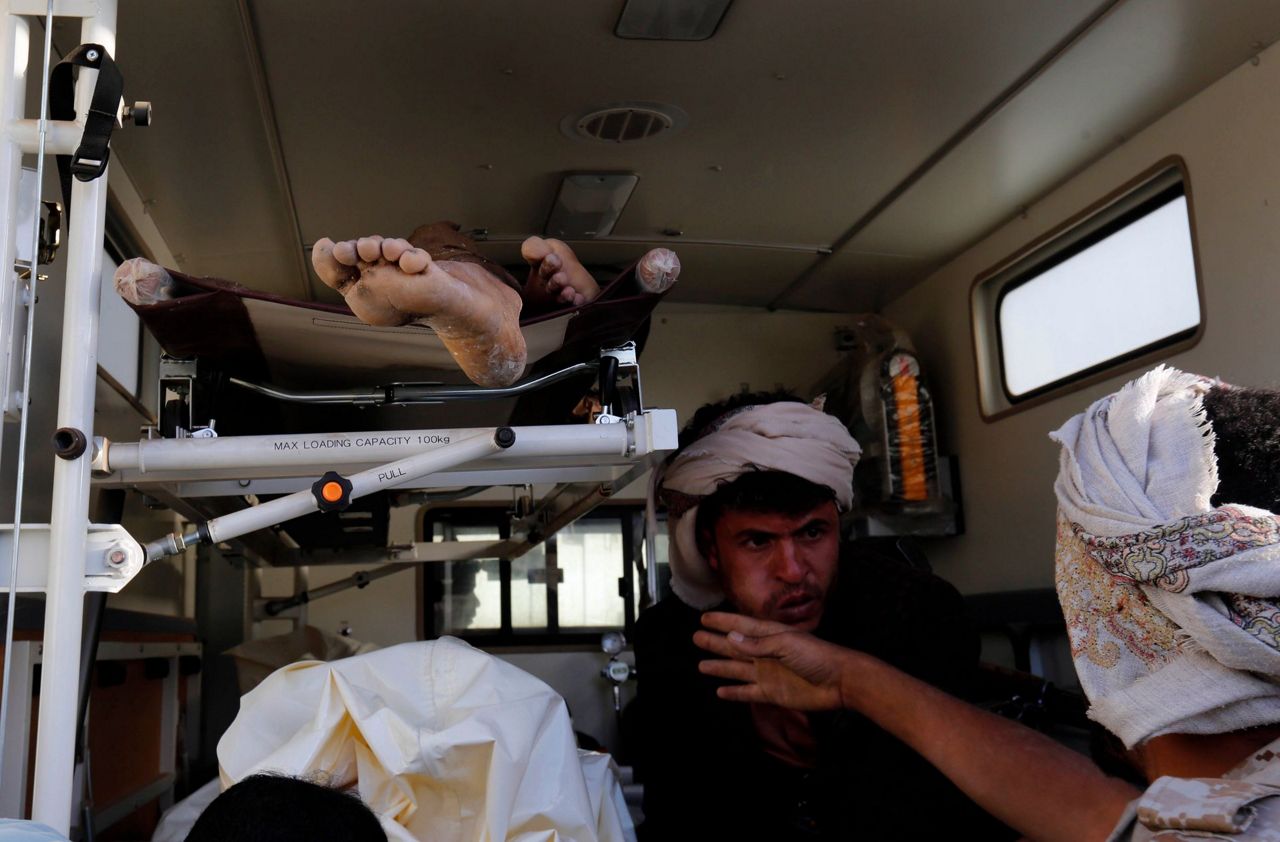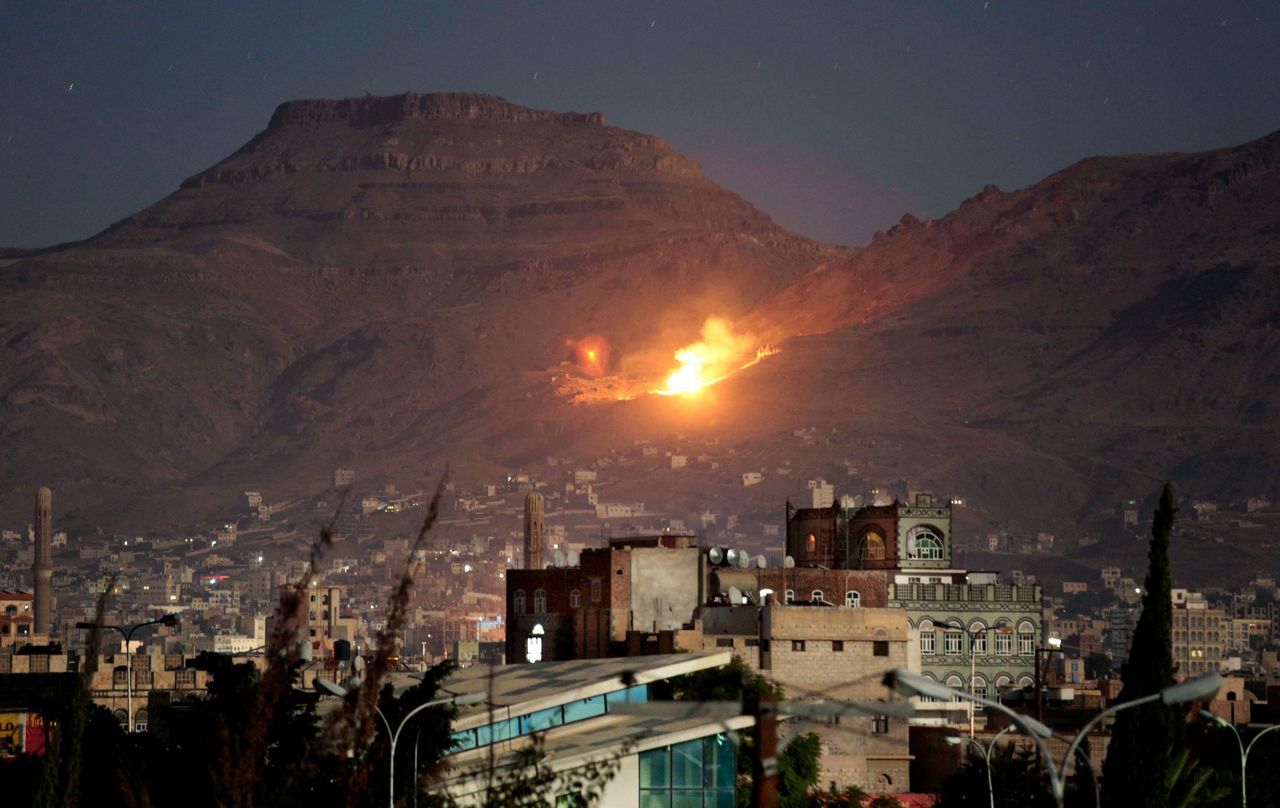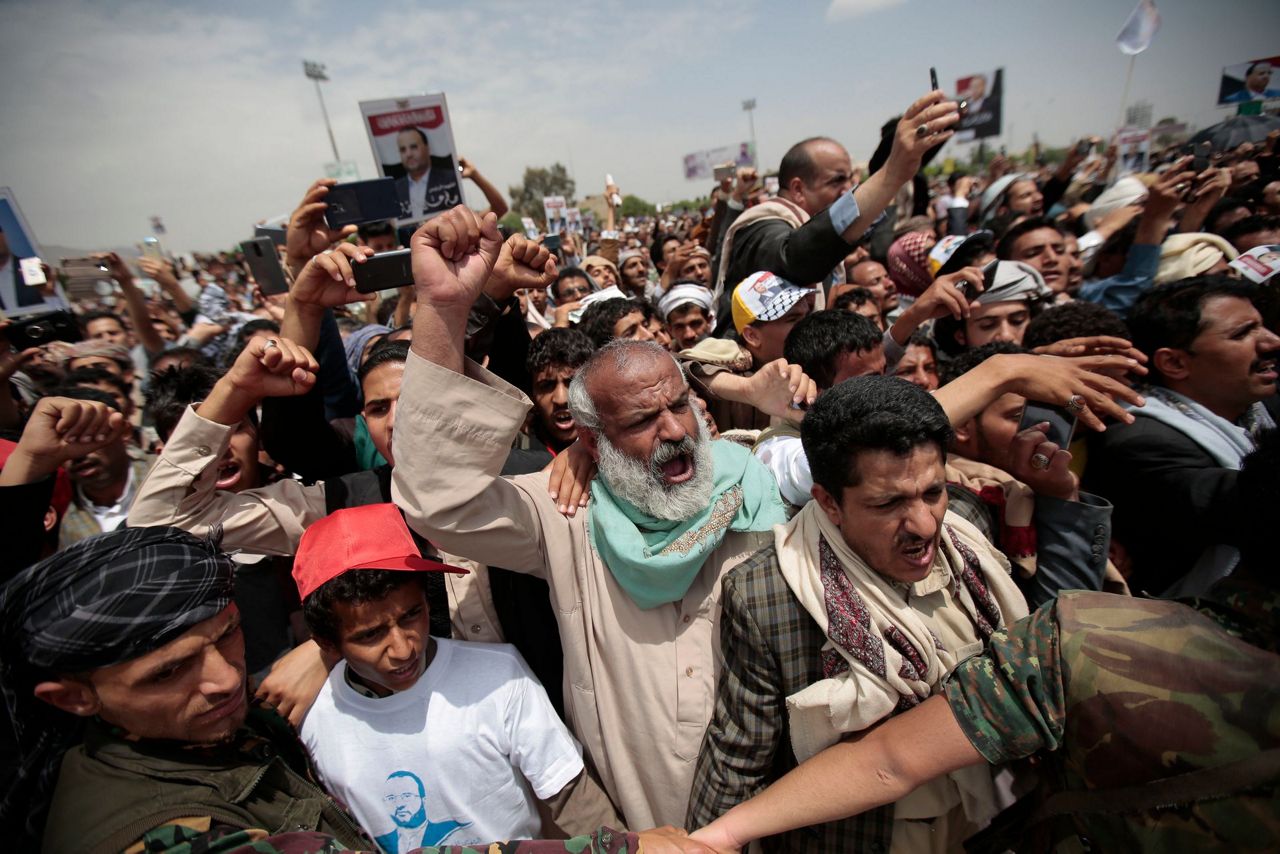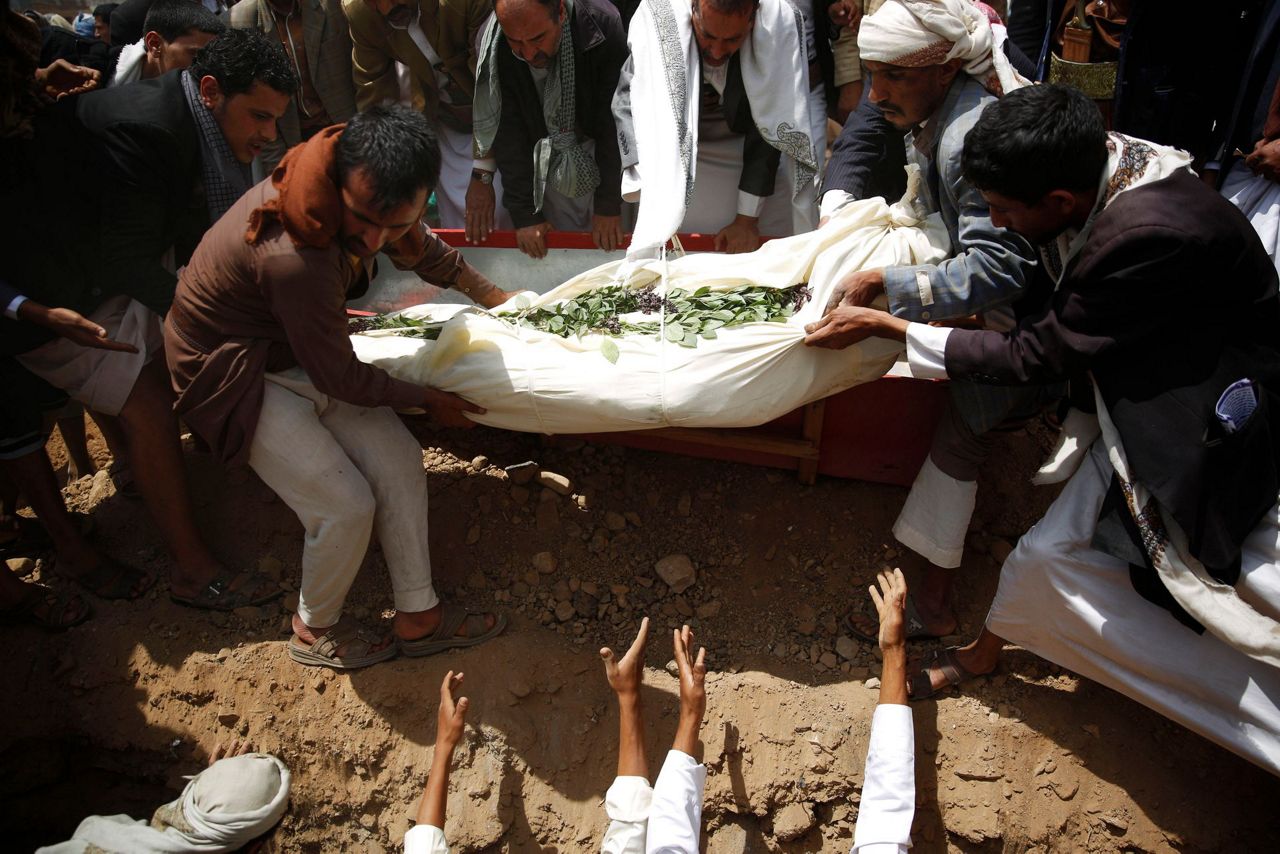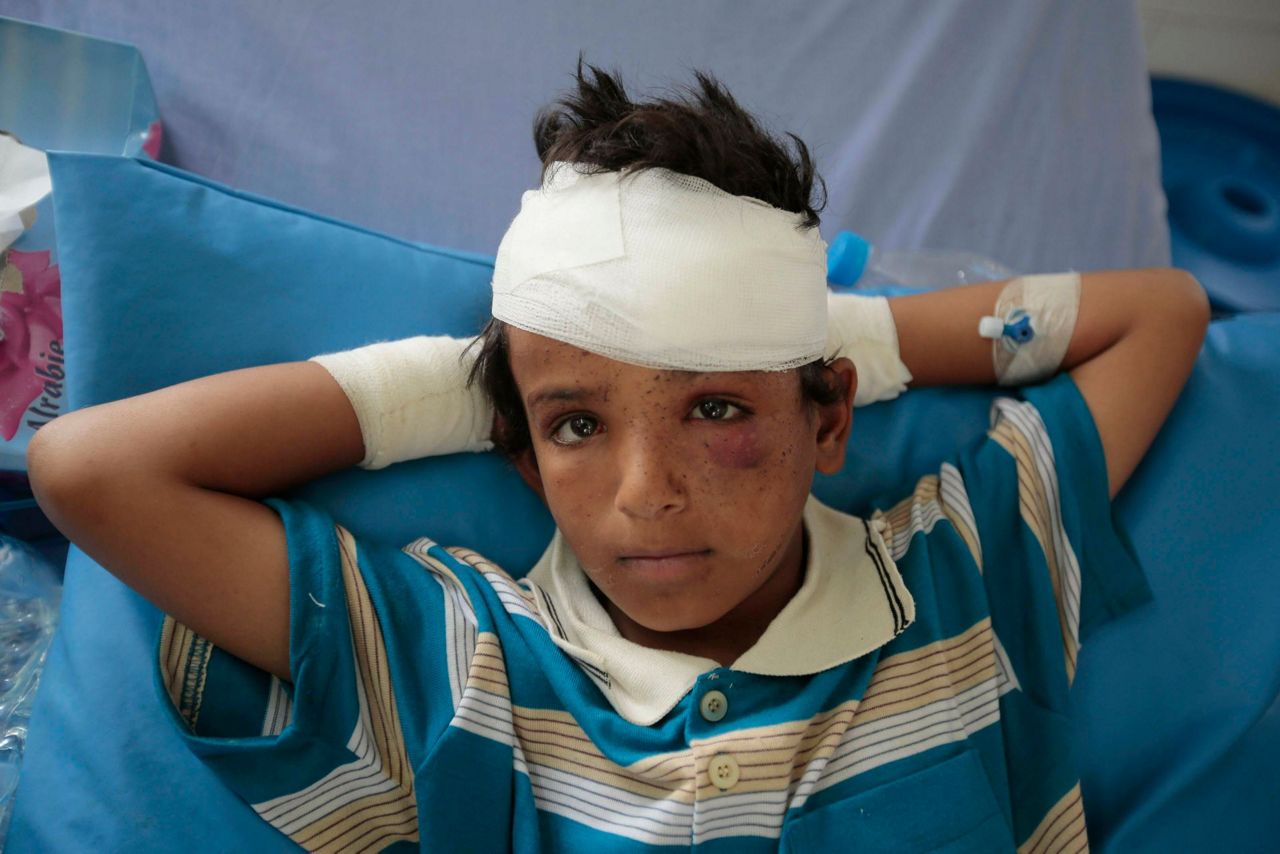CAIRO (AP) — Yemen's civil war has killed at least 91,600 people so far, a database tracking violence said Wednesday, presenting a new estimate after completing reporting for the first months of fighting in 2015.
The conflict began with the 2014 takeover over of northern and central Yemen by the Iranian-backed rebels, driving out the internationally recognized government from the capital, Sanaa.
Months later, in March 2015, a Saudi-led coalition launched its air campaign to prevent the rebels, known as Houthis, from overrunning the country's south.
In the relentless campaign, Saudi-led airstrikes have hit schools, hospitals and wedding parties and killed thousands of Yemeni civilians. The Houthis have used drones and missiles to attack Saudi Arabia and have targeted vessels in the Red Sea.
Civilians have borne the brunt of the conflict, which has created what the United Nations says is the world's worst humanitarian crisis.
The Armed Conflict Location & Event Data Project, or ACLED, said that in 2015, about 17,100 people were reported killed — the second-most lethal year after 2018, which was the deadliest one on record.
ACLED said 11,900 people were killed this year, compared to 30,800 in 2018.
The group said the Saudi-led coalition and its allies were responsible for more than 8,000 of about 11,700 deaths resulting from the direct targeting of civilians, while the Houthis and their allies were responsible for the rest.
The group said it recorded over 18,400 killed in the southwestern province of Taiz since 2015, placing Taiz as the most violent province in Yemen, largely due to a four-year siege by the Houthis, the group said.
Hodeida and Jawf followed Taiz as the next most violent provinces in Yemen, with almost 10,000 in total combat fatalities, reported in each region since 2015, according the group.
ACLED said the U.N.-brokered cease-fire for the Red Sea port city of in Hodeida contributed to a partial drop in reported fatalities in recent months. That cease-fire has since crumbled.
"These data are both a tool and a warning: the international community must use them to help understand, monitor, and ultimately resolve the conflict before the situation spirals even further out of control," said ACLED executive director Clionadh Raleigh.
The data covers everything from airstrikes, shelling and ground battles between the various forces to militant bombings and violence at protests. But their numbers do not include those who have died in the humanitarian disasters caused by the war, particularly starvation.
Sam Jones, a spokesman for the ACLED, told The Associated Press that their estimates for civilian fatalities exclude "collateral damage," meaning the total civilian death toll for the war is likely significantly higher.
Jones said their figures also don't include the first months of the war after September 2014, when the Houthis moved from their northern stronghold in Saada province to take control of the capital.
The group, which receives funding in part from the U.S. State Department and Dutch Ministry of Foreign Affairs, builds its database on news reports from Yemeni and international media and international agencies..
Also on Wednesday, Yemeni security officials said tensions flared on Yemen's remote island of Socotra in the Gulf of Aden near Somalia, two days after forces backed by the United Arab Emirates stormed the office of Socotra Gov. Fahmi Mahrus.
The officials said clashes erupted between Fahmi guards and forces from the Security Belt, a force equipped and trained by the UAE, wounding one from each side.
They said the governor refused to unload an Emirati cargo vessel carrying weapons to the Security Belt forces.
Troops loyal to Yemen's internationally recognized government of President Abed Rabbo Mansour Hadi took control of the port Tuesday and rebelled against the UAE-backed forces, according to a statement from Socotra authorities.
The officials spoke on condition of anonymity under regulations.
Hadi's government is at odds with the UAE, formally an ally in the war against the Houthis. The Emiratis have been expanding their influence in southern Yemen.
In the Shabwa province, officials and witnesses said clashes between the UAE-funded Shabwa Elite Force and other forces loyal to Hadi in the the city of Ataq, killed at least three troops and wounded five others.
The officials said the clashes erupted after the Elite Force seized control of government offices and buildings in the city.
The officials spoke on condition of anonymity because they were not authorized to brief media and the witnesses for fear of reprisals.
___
Associated Press writer Ahmed al-Haj in Sanaa contributed to this report.
Copyright 2019 The Associated Press. All rights reserved. This material may not be published, broadcast, rewritten or redistributed.




